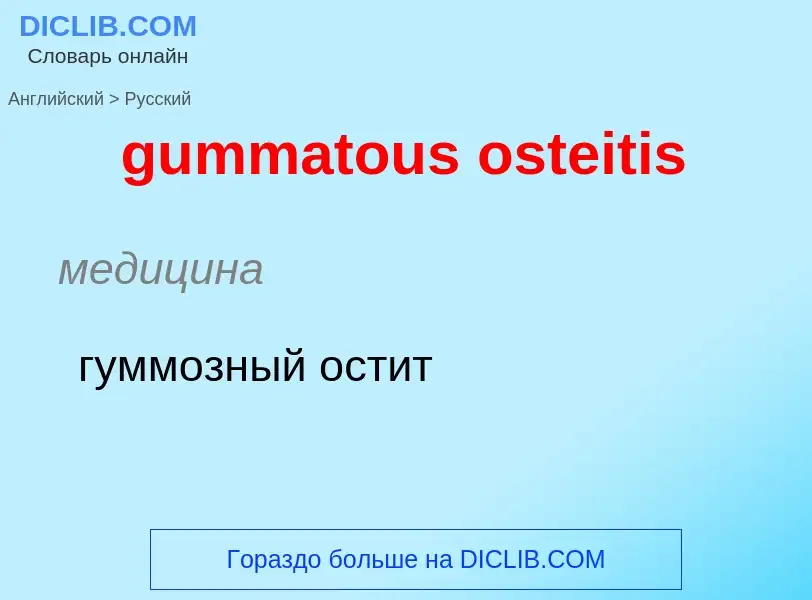Tradução e análise de palavras por inteligência artificial ChatGPT
Nesta página você pode obter uma análise detalhada de uma palavra ou frase, produzida usando a melhor tecnologia de inteligência artificial até o momento:
- como a palavra é usada
- frequência de uso
- é usado com mais frequência na fala oral ou escrita
- opções de tradução de palavras
- exemplos de uso (várias frases com tradução)
- etimologia
gummatous osteitis - tradução para russo
медицина
гуммозный остит
медицина
оссифицирующий остит
склерозирующий остит
медицина
болезнь Реклингхаузена
болезнь Энгеля-Реклингхаузена
дизонтогенетическая дистрофия Реклингхаузена
околощитовидный остит
паратиреоидный остит
фиброзный генерализованный остит
Wikipédia
Alveolar osteitis, also known as dry socket, is inflammation of the alveolar bone (i.e., the alveolar process of the maxilla or mandible). Classically, this occurs as a postoperative complication of tooth extraction.
Alveolar osteitis usually occurs where the blood clot fails to form or is lost from the socket (i.e., the defect left in the gum when a tooth is taken out). This leaves an empty socket where bone is exposed to the oral cavity, causing a localized alveolar osteitis limited to the lamina dura (i.e., the bone which lines the socket). This specific type is known as dry socket and is associated with increased pain and delayed healing.
Dry socket occurs in 0.5% to 5% of routine dental extractions, and in about 25–30% of extractions of mandibular (lower) wisdom teeth that are impacted (buried in the bone of the lower jaw, erupting during adulthood). The pain of dry socket may appear as early as three days after surgery, but a patient who has gone a full week without experiencing this pain is highly unlikely to develop it.





